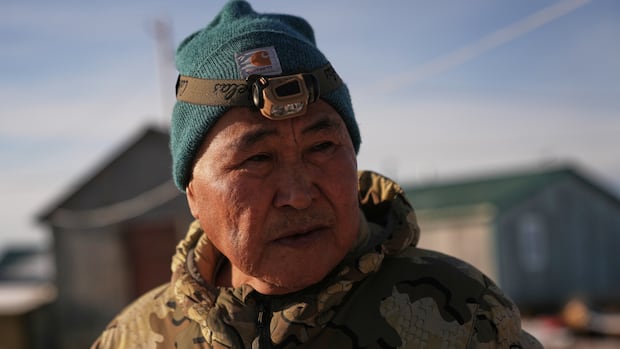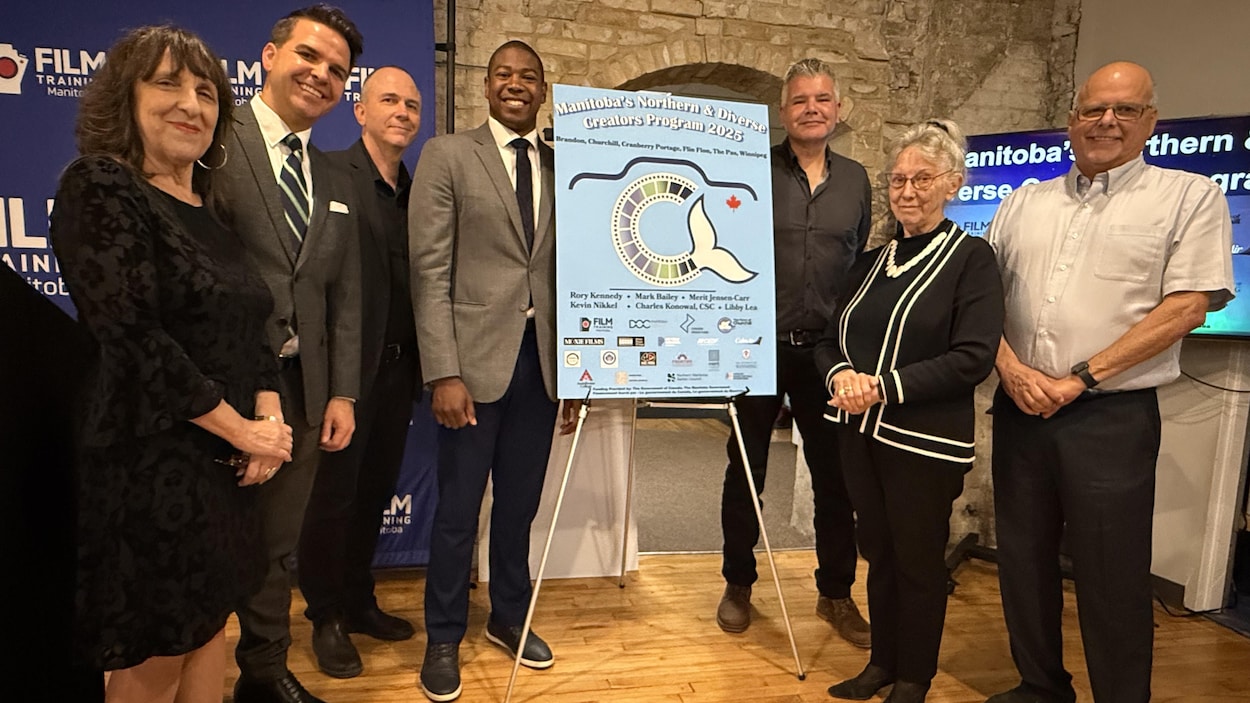Sudbury
During and aft the Second World War, thousands of Ontario girls became Farmerettes, taking connected the enactment to enactment Canada’s nutrient supply. Their contributions were mostly forgotten — until now. The caller documentary We Lend a Hand premieres successful Sudbury connected Friday, and features first-hand accounts from surviving women.
New movie tells communicative of estimated 40,000 teen girls who worked farms successful 1940s, '50s

Faith Greco · CBC News
· Posted: Apr 03, 2025 6:52 AM EDT | Last Updated: 4 hours ago

Morning North9:20New movie highlights the thousands of young women who served arsenic Farmerettes
Tens of thousands of young women from crossed Ontario worked connected farms during and aft the Second World War as portion of a little-known authorities program.
Their communicative is present the taxable of a caller documentary, We Lend A Hand, which premieres Friday astatine the Junction North Film Festival successful Sudbury.
The film, directed by Colin Field, dives into the experiences of the Farmerettes — teenage girls who took connected cultivation enactment to enactment Canada's warfare effort by participating successful the Ontario Farm Service Force.
From the aboriginal 1940s until the aboriginal 1950s, an estimated 40,000 young women worked the fields, galore coming from bluish Ontario and municipality areas with nary anterior farming experience.

"It's a communicative that astir radical don't cognize successful Ontario and they're amazed to hear," Field said.
"These women are present mostly successful their 90s. Two of them are implicit 100. I recovered 20 of them and interviewed them implicit the past mates of years."
Field said his 50-minute documentary explores however these young women became an indispensable portion of the cultivation workforce during and aft the Second World War.
"A lot of them talked astir however they had signed up conscionable for amusive and to get distant from their, you know, their parents, and to spell and person an adventure," Field explained.
"But really, portion they were there, they benignant of appreciated the enactment and learned however to enactment hard and had each these opportunities and this state to conscionable different young women from antithetic religions, antithetic provinces."
'It was a batch of hard labour retired successful the fields'

The inspiration for We Lend A Hand came from Onion Skins and Peach Fuzz: Memories of Ontario Farmerettes, a publication co-authored by Bonnie Sitter and Shirleyan English.
English, a erstwhile Farmerette herself, recalls archetypal proceeding astir the programme arsenic a 16-year-old miss surviving successful North Bay successful 1952.
"The radical who were portion of the provincial government, they came astir to the assorted schools, and they had posters and things and things similar that. So my woman and I astatine the time, we decided we'd similar to bash that," English said.
English explained that during the summer, girls had fewer occupation opportunities compared to boys. Babysitting was fundamentally the lone enactment available, and neither she oregon her person had enactment lined up.

"They were looking for girls who would travel and work, due to the fact that the young men were each getting acceptable to motion up for the war, and immoderate of them were already moving successful jobs similar we were," she said.
English said that aft applying, the authorities contacted them and offered to screen their question expenses for the workplace program, with the information that they enactment for 13 weeks. In return, they were exempt from penning last exams that year.
"Of course, that was a existent come-on for you know, immoderate miss to get retired of their exams — that would beryllium fabulous. So we signed up, and we were accepted and aboriginal successful June, we got connected the bid and acceptable off," she said.
'We should beryllium recognized'

English recalled that aft being accepted, she travelled by bid to Toronto successful aboriginal June. There, provincial representatives — mostly women — welcomed the recruits and assigned them to farms crossed Lambton County successful southwestern Ontario. English was sent to the colony of Thedford.
The accommodations were dormitory-style, providing some meals and sleeping quarters. Each morning, the girls were transported to their enactment sites successful ample trucks.
English said they were assigned to 2 main crops: onions and peppermint. Their enactment involved switching betwixt hoeing onions and tending to the peppermint fields.
"It was a batch of hard labour retired successful the fields," she recalled. "A batch of it we did connected hands and knees."

English said she learned a batch astir farming and called it a fantastic experience. She said she would person enrolled the pursuing year if the programme hadn't unopen down.
After the war, much than 157,000 refugees came to Canada and the government helped integrate these newcomers into farming communities, replacing the teenage Farmerettes.
"I learned a batch astir farming, and I ever deliberation that that acquisition led to maine liking gardening, plants and flowers and things similar that," English said.
She wants to beryllium remembered not conscionable arsenic a teenage workplace worker, but arsenic portion of a procreation of young women who stepped up erstwhile their state needed them.
"The boys who were disconnected doing something, they each got recognized… but determination was thing connected the Farmerettes. Nobody had ever heard of them, truthful we thought we should beryllium recognized too," she said.
We Lend A Hand premieres astatine the Junction North Film Festival on Friday afternoon.
ABOUT THE AUTHOR

Faith Greco is simply a quality newsman for CBC Ottawa. You tin scope her astatine [email protected] and connected her Twitter relationship @FaithGreco12.
With files from Warren Schlote

 10 Months ago
113
10 Months ago
113










 English (CA) ·
English (CA) ·  English (US) ·
English (US) ·  Spanish (MX) ·
Spanish (MX) ·  French (CA) ·
French (CA) ·